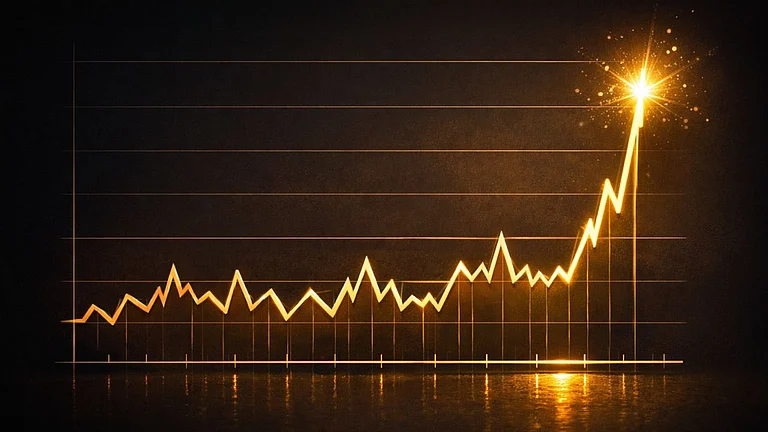Global gold-backed exchange-traded funds (ETFs) witnessed their strongest inflows in July 2024 in the last two years, according to data from the World Gold Council (WGC). For the first time since April 2022, gold ETFs attracted $3.7 billion in inflows in July 2024, with India leading the charts in the Asian region.
WGC noted that all regions reported positive flows in July 2024, with Western gold ETFs reporting the maximum inflows.
What Are Gold ETFs?
Gold ETFs are exchange-traded funds that expose investors to gold without having to purchase, store, and resell the precious metal directly. Some gold ETFs track the price of gold, while others invest in companies in the gold-mining industry.
With an uptick in gold ETF inflows, total holdings increased by 49 tonnes in July, to 3,154 tonnes. In dollar terms, cumulative inflows came out at $3.7 billion, which — combined with a 4 per cent improvement in gold prices over the month – took the total assets under management (AUMs) to $246 billion.
Is Politics Driving Gold Demand?
According to the WGC report, at least in the US, the political developments pushed up the demand for gold.
“July was unprecedented on the political front,” WGC said, citing incidents like the assassination attempt on former US President Donald Trump and incumbent President Joe Biden’s decision not to stand in the November 2024 Presidential election. This boosted demand for safe-haven gold, WGC said.
WGC further noted that dropping inflation, the cooling labour market, and the comments of the US Federal Reserve Chair Powell that a cut in September 2024 is ‘on the table’ have intensified investor expectations of easing soon. These developments have caused Treasury yields and the dollar to drop, giving gold demand an additional boost.
Asia Records More Inflows As Budget 2024 Drives Indian Demand
Asian ETF inflows spiked for the 17th straight month wherein a five-tonne inflow drove total holdings to 185 tonnes. AUMs rose to $15 billion while inflows totaled up to $438 million.
According to WGC India led these inflows wherein such a strong Indian demand was mainly aided by changes announced in Budget 2024. “This effectively shortens the long-term investment qualifying time period and lowers the associated tax rate which makes the investment landscape for gold ETFs more equitable and attractive,” the WGC noted.
Union Budget 2024-25 also rationalised taxes relating to the physical and financial gold markets. The changes include:
Custom Duty Cut: The total customs duty on gold was reduced from 15 per cent to 6 per cent and that on gold doréwas lowered to 5.35 per cent from 14.35 per cent.
WGC in a report noted that this is the sharpest reduction on record and the lowest since June 2013. Previously, gold import duties had been well above 10 per cent for almost 11 years, it states.
LTCG Rate Cut & Shortened Holding Period: The holding period for taxation of long-term capital gains (LTCG) on gold was reduced to 24 months from 36 months. LTCG rates have also been reduced from 20 per cent with indexation to 12.5 per cent without indexation. This proposal came into effect from the cut-off date of Budget announcements, i.e., July 23, 2024.
Re-Categorisation Of Assets: The Finance Bill 2024 has amended the definition of ‘specified mutual funds’ to exclude gold ETFs and gold mutual funds, and include only debt and money market securities. Till last year’s Budget, gold ETFs and gold mutual funds were considered under ‘specified mutual funds’ and gains were taxed as short-term capital gains (STCGs) at the applicable slab-rate regardless of the holding period. However, under the new rules, gold ETFs and/or mutual funds will now be treated as any other long-term asset if held for a specified period.
It is also important to note that LTCG has been reduced to 12 months from 36 months for listed securities and to 24 months for unlisted securities. Since gold ETFs and/or mutual funds are listed assets, they will be considered as long-term if held for more than 12 months and thereon will be taxed at the lower rate of 12.5 per cent without indexation. Similarly, unlisted gold mutual funds will be considered as long-term investments if held for more than 24 months and will be taxed at the lower rate of 12.5 per cent without indexation.
As a result of these amendments, WGC notes that bullion dealers, manufacturers, and retailers may experience a partial loss on inventory. However, it further elaborates that such losses could be recovered over the next two quarters in anticipation of an increase in consumer demand due to lower prices.














